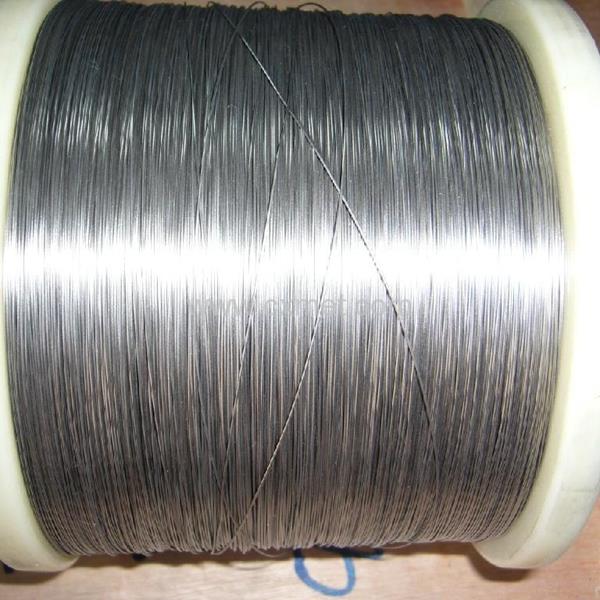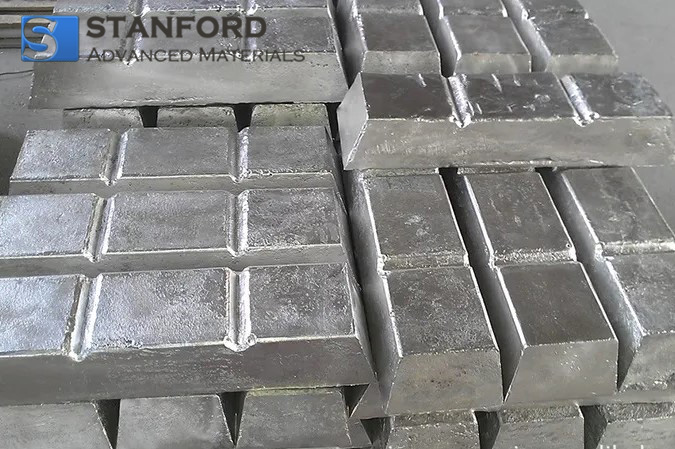Different Grades Of Titanium And Titanium Based Alloys
In addition to the 4 commercially pure titanium grades, there are other titanium grades and titanium alloys available.
Titanium
Titan Grade 7
Titan Grade 7 has physical and mechanical properties that correspond to those of CP3 titanium or Grade 2. It demonstrates good welding and processing properties and is highly resistant to corrosion, particularly against reducing acids.
Applications
Chemical processing, power generation, desalination
Standards
ASME SB-381, ASME SB-337, ASME SB-265, ASME SB-363, ASME SB-337, ASME SB-348, ASME SB-338, ASME SB-338
Available Forms
Bar, plate, forgings, sheet, welding wire, tube, wire
Titan Grade 11 - CP Ti-0.15Pd
Titan Grade 11 is extremely resistant to corrosion. It possesses mechanical and physical properties that compare with those of Titanium CP Grade 2.
Applications
Chemical processing, industry, desalination, power generation
Standards
ASME SB-338
Available Forms
Tube
Titanium Base Alloys
Titan Grade 5 - Titanium 6Al-4V
Titan Grade 5 is the most commonly available titanium alloy in trade. It provides a combination of toughness and high strength. It exhibits good processing and welding properties.
Applications
Aerospace, marine, chemical processing, medical
Standards
ASME SB-265, ASME SB-348, AMS 4911, AMS 4928, AMS 4967, AMS 4965
Titan Grade 6 - Titanium 5Al-2.5Sn
Titan Grade 6 is an alloy that offers good stability, weldability and strength at elevated temperatures.
Applications
Aerospace
Standards
ASME SB-381, MIL-T-9046, AMS 4966, ASME SB-348, MIL-T-9047, AMS 4956, ASME SB-265, AMS 4976, AMS 4926, AMS 4910
Available Forms
Bar, sheet, forgings, plate, wire
Titan Grade 9 - Titanium 3Al-2.5V
Titan Grade 9 has an intermediate strength between Grades 4 and 5. It shows high corrosion resistance and is used in both industry and aerospace. It operates at higher temperatures than Grades 1, 2, 3 and 4. It exhibits excellent cold-forming properties.
Applications
Aerospace, chemical processing, automotive, medical, consumer applications, shipping, transport
Standards
AMS 4944, AMS 4943, ASME SB-338
Available Forms
Bar, plate, forgings, wire, sheet
Titan Grade 12 - Ti-0.3-Mo-0.8Ni
Titan Grade 12 is an alloy that contains 0.8% nickel and 0.3% molybdenum. This composition results in improved corrosion resistance compared with Titanium Grades 2 and 3.
Applications
Chemical processing, power generation, desalination, industry
Standards
ASME SB-338
Available Forms
Tube
Titan Grade 19 - Titanium Beta C
Titan Grade 19 can be heat treated and exhibits exceptionally high strength. It provides good resistance to corrosion and stress.
Applications
Automotive, aerospace
Standards
MIL-T-9046, ASME SB-348, MIL-T-9047, AMS 4958, AMS 4957, ASME SB-265
Titan Grade 23 - Titanium 6Al-4V ELI
Titan Grade 23 is comparable to Titanium Grade 5. It contains lower amounts of oxygen, iron and nitrogen and exhibits improved fracture toughness and ductility in comparison with Titanium Grade 5.
Applications
Aerospace, marine, chemical processing, medical
Standards
AMS 4911, AMS 4930, AMS 4928, AMS 4931, AMS 4965, AMS 4935, AMS 4967, MIL-T-9046, AMS 4991, AMS 4985, MIL-T-9047, BSTA 10,11 and 12, DIN 3.7165, BSTA 28,56 and 59, AMS 4907 ELI, AMS 4956 ELI, AMS 4930 ELI, UNS R56407, ASTM F136 ELI
Available Forms
Bar, plate, forgings, welding wire, sheet, wire
Titanium 6Al-6V-2Sn - Titanium 6-6-2
Titanium 6-6-2 exhibits stability, strength and creep resistance at temperatures up to 550 °C.
Applications
Gas, engine afterburners, turbine compressors, aerospace
Standards
AMS 4919, AMS 4975, AMS 4952, DIN 3.7164, GE B50TF21, GE B50 TF22, GE B50TF22, MIL F-83142, GE C50TF7, MIL T-9046, MIL T-9047, UNS R54620, PWA 1220
Available Forms
Bar, sheet, plate
Titan 6Al-2Sn-4Zr-2Mo - Titanium 6-2-4-2
Titan 6Al-2Sn-4Zr-2Mo is an alpha-beta alloy. It is used in aged, annealed or solution-treated conditions. It is a high-strength, heat-treatable alloy with lower ductility and toughness than Titanium Grade 5 (6Al-4V) and is difficult to weld. Cold forming poses challenges because of strong springback and high strength. The alloy can be welded under protective gas, although the heat-affected zone shows reduced toughness and ductility compared with the base material. Its hardness is approximately Rockwell C 36–38. Please contact us to determine the minimum order quantity.
Applications
Airframe components, structural components, jet engine parts, rocket engine casings
Standards
MIL-T-9047, AMS 4981
Available Forms
Bar, sheet, wire, plate, fittings, forged components, seamless tubes, flanges, welded tubes
Titanium 6Al-2Sn-4Zr-6Mo - Titanium 6-2-4-6
Titanium 6Al-2Sn-4Zr-6Mo is an alpha-beta alloy. It is fully heat treatable in profiles up to one inch and is used at temperatures up to approximately 400 °C (750 °F). It is employed in many aerospace engine and airframe components, as well as in offshore, maritime and power generation applications. The alloy is typically supplied as a bar and is used for deep-sea drilling. It can be cold- or warm-formed. Please contact us to determine the minimum order quantity.
Applications
Aerospace engine components, maritime applications, aircraft components, power generation, offshore applications
Standards
AMS 4981
Available Forms
Bar, sheet, plate
Titan 8Al-1Mo-1V - Titanium 8-1-1
Titan 8Al-1Mo-1V is a near-alpha alloy developed for use at elevated temperatures up to 455 °C. It has the lowest density and the highest modulus among all titanium alloys. It exhibits excellent creep resistance and is weldable by resistance welding and shielded gas melting. It is used in the annealed condition for engine components and aircraft cells that require excellent creep resistance, high strength and a high stiffness-to-density ratio. Its workability is similar to that of Titanium 6Al-4V. Please contact us to confirm the minimum order quantity.
Applications
Jet engine components, aircraft cell components
Standards
MIL-T-9046, AMS 4972, MIL-T-9047, AMS 4973, AMS 4915, AMS 4916, AMS 4955
Available Forms
Forged components, sheets, bars, strips, plates, wires, extruded profiles

Titan 10V-2Fe-3Al
Titan 10V-2Fe-3Al is a titanium beta alloy. It is harder and stronger than many other titanium alloys. It is heat treatable and weldable and can be easily formed. As a fully beta alloy, it is more difficult to machine than most titanium alloys. The main machining challenges are springback, flank wear and chip control. Consequently, chipholding stages with lightweight stones at the cutting edge are advantageous. Please contact us to determine the minimum order quantity.
Applications
Airframe components, discs, wheels and spacers, compressor blades
Standards
AMS 4983, AMS 4986, AMS 4987, AMS 4984
Available Forms
Bar, plate, forgings, sheet, seamless tubes, wire, welded tubes
Titan 15V-3Cr-3Sn-3Al
This metastable beta alloy is predominantly available in sheet form. It exhibits excellent cold formability and age hardening properties. It is often used as a substitute for warm-formed sheets of Titanium Grade 5 (6Al-4V) and can also be supplied as foil for cast components. For aerospace applications, this grade is frequently specified as AMS 4914. Please contact us to determine the minimum order quantity.
Applications
Tank applications in aerospace, cast components, airframe applications, high-strength hydraulic tubes, fasteners
Standards
ASTM B265, AMS 4914
Available Forms
Foil, sheet
Titanium Alpha Alloys
Commercially pure titanium and alpha alloys are not heat treatable and demonstrate excellent weldability.
Applications
Cryogenic applications, chemical processing equipment, aircraft components
Standards
AMS 4973, AMS 4924, AMS 4976, MIL-T-9047, AMS 4972, GR-6 MIL-T9046, AMS 4910, AMS 4909, ASTM B265, AMS 4966, AMS 4915/4916, AMS 4966, AMS 4924, MIL-T-81556A A-1, AMS 4933, MIL-T-81556A A-4, MIL-T-81556A A-2
Available Forms
Bar, plate, forgings, sheet, extrusions
Titanium Beta Alloys
Titanium beta and near-beta alloys are fully heat treatable and are generally weldable. They provide high strength and good creep resistance at intermediate temperatures. Under solution-treated conditions, beta alloys can be easily formed. Frequently encountered titanium beta alloys include: Ti3Al8V6Cr4Mo4Zr, Ti-3Al-8V-6Cr-4Mo-4Zr, ASTM Grade 19, ASTM Grade 21, AMS 4983, AMS 4984 and AMS 4987, Ti-15Mo-3Nb-3Al-2Si, Ti-15Mo-3Nb-3Al-2Si, Ti-10V-2Fe-3Al, AMS 4914.
The metastable titanium beta alloys are heat treatable by ageing and solution annealing. Fully stable beta alloys can only be annealed.
Applications
Aerospace
Standards
ASTM Grade 19, AMS 4914, ASTM Grade 21, AMS 4984, AMS 4983, AMS 4987
Available Forms
Forgings
Titanium Alpha-Beta Alloys
Titanium alpha-beta alloys are heat treatable. Most of these alloys are weldable. They exhibit moderate to high strength and high-temperature creep resistance that is not inferior to that of other alpha alloys. Their cold forming quality is limited, whereas warm forming quality is generally very good. The most widely used titanium alpha-beta alloy is Ti 6Al-4V; other alloys in this category include 6Al-4V-ELI, 6Al-2Sn-4Zr-2Mo, 6Al-6V-2Sn and 3Al-2.5V 8Mn.
Applications
Airplane and turbine components, prosthetic devices, ship equipment, chemical processing equipment
Standards
ASME SB-265, ASME SB-348, AMS 4911, AMS 4965, AMS 4928, MIL-T-9047, AMS 4967, AMS 4930, AMS 4981, AMS 4930, MIL-T-9046, AMS 4971, AMS 4918, ASTM F 136, AMS 4908, DMS1879/2237, ASTM B348, AMS 4943, MIL-T-9047 G, BMS 7-348, AMS 4975, AMS 4928, AMS 4976, DMS 1570, AMS 4934, AMS 4920
Available Forms
Bar, flanges, fittings, forgings, sheet, plate, wire, tube
Conclusion
We thank you for reading this article. We hope it has provided detailed information on the various titanium grades and titanium alloys. If you require further information on titanium products, please visit Stanford Advanced Materials (SAM) for further details.
Stanford Advanced Materials (SAM) is a global supplier of titanium products and has over two decades of experience in the production and distribution of commercially pure titanium and titanium alloys. We trust that SAM will serve as your chosen titanium supplier and business partner.

 Bars
Bars
 Beads & Spheres
Beads & Spheres
 Bolts & Nuts
Bolts & Nuts
 Crucibles
Crucibles
 Discs
Discs
 Fibers & Fabrics
Fibers & Fabrics
 Films
Films
 Flake
Flake
 Foams
Foams
 Foil
Foil
 Granules
Granules
 Honeycombs
Honeycombs
 Ink
Ink
 Laminate
Laminate
 Lumps
Lumps
 Meshes
Meshes
 Metallised Film
Metallised Film
 Plate
Plate
 Powders
Powders
 Rod
Rod
 Sheets
Sheets
 Single Crystals
Single Crystals
 Sputtering Target
Sputtering Target
 Tubes
Tubes
 Washer
Washer
 Wires
Wires
 Converters & Calculators
Converters & Calculators
 Write for Us
Write for Us

 Chin Trento
Chin Trento



